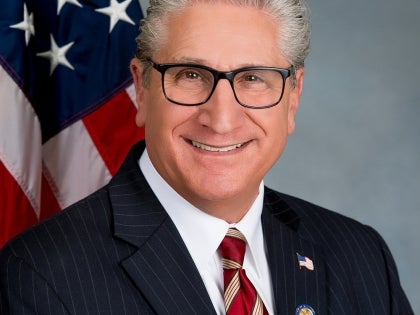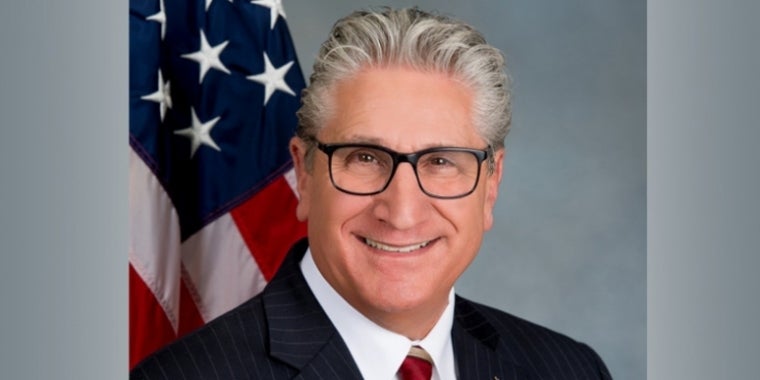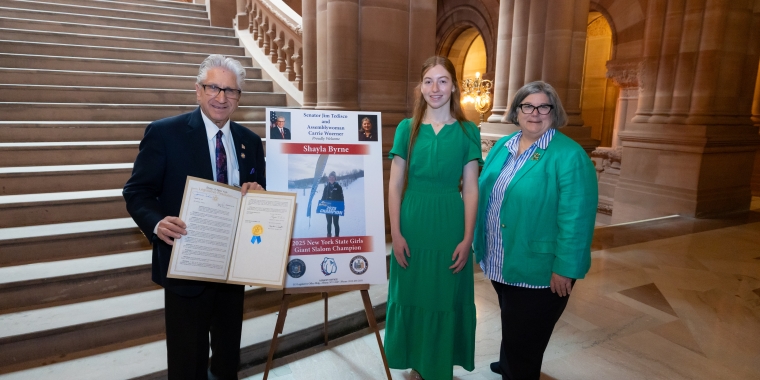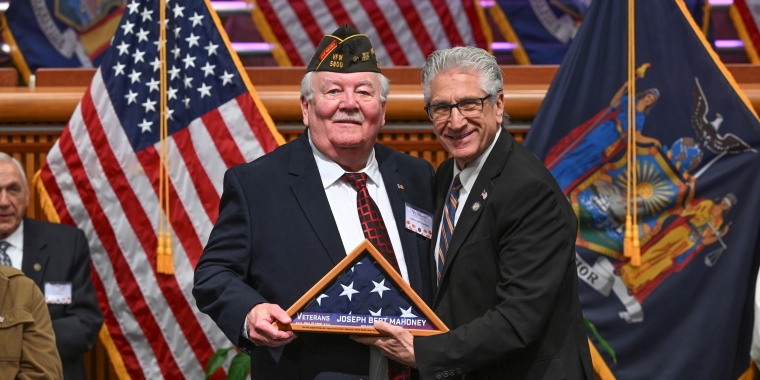
Tedisco, Walsh Call for New Investigation, Bill to Videotape Victim Impact Statements, As Parole Board Caught Blocking 200,000 Messages Opposing Parole of Cop Killers
Senator Jim Tedisco
March 11, 2019

Senator Jim Tedisco (R,C,I,REF-Glenville) and Assemblywoman Mary Beth Walsh (R,C,I,REF-Ballston) issued an urgent call for the legislature to pass new legislation to enhance the voice of crime victims in parole hearings to keep our communities safe and ensure dangerous offenders stay locked-up. They were joined by Michael and Regina Stewart, the parents of Christopher Stewart, a Shenendehowa High School senior who was killed by a drunk and drugged driver.
Tedisco and Walsh’s call for parole reform is in response to a Daily News investigation, which uncovered that 200,000 messages opposing the release from prison of dangerous criminals, such as convicted cop killers Herman Bell and Robert Hayes who were freed last year, never reached the desks of Parole Board commissioners.
Senator Tedisco and Assemblywoman Walsh are reaching out to the Acting State Corrections Commissioner Anthony Annucci to request an investigation as to why the Parole Board never received the messages and seek an action plan to ensure this doesn’t happen again.
Currently, if a victim or their family goes before the Parole Board to provide a victim’s impact statement, they only talk to one Parole Board commissioner with no guarantee that individual will be on the panel who will be deciding whether to grant parole or not.
Senator Tedisco’s parole reform legislation would require all victim impact statements given in person be video recorded and viewed by all state Parole Board members prior to deciding whether to release a convicted criminal so panel can witness the emotional toll these crimes have taken on the victims and their loved ones (S.4127).
Tedisco also is sponsoring legislation to extend the waiting time between parole hearings from 24 to 60 months (S.4354-Prime Sponsored by Senator Lavalle) and life imprisonment without parole for persistent violent felony offenders (S.357).
“It’s inexcusable that 200,000 messages since 2014, including over 48,000 last year alone, were never seen by the state Parole Board members who were weighing the release of cop killers and other dangerous criminals,” said Senator Jim Tedisco. “We can be compassionate for people who have made mistakes, done their time and are trying to turn their lives around, but first and foremost, we need justice and compassion for crime victims and ensure when it comes to granting parole that their voices are given much greater prominence.”
“Current practice makes it obvious that we have lost sight of the painand loss of the victims of crime, their families, and the outrage ofsociety all together. When a parole board considers whether or not toparole someone they must, at minimum, consider the statements providedby those who have been victimized. These messages should be criticalto the parole process, and if establishing a video requirement is theonly way to ensure they are heard, then that is the direction weshould be going in,” said Assemblywoman Mary Beth Walsh.
“Having been through the complete parole process, our family has been very involved in understanding this process and have identified areas where improvements not only can be made but SHOULD be made. Mandatory videotaping of a victim’s presentation to the parole board, along with increasing the waiting period between parole hearings from 24 months to 60 months will result in a change that acknowledges increased fairness to all victims who have been brought into this situation through no fault of their own,” said Michael Stewart, the father of Christopher Stewart, a Shenendehowa High School senior who was killed by a drunk and drugged driver.



